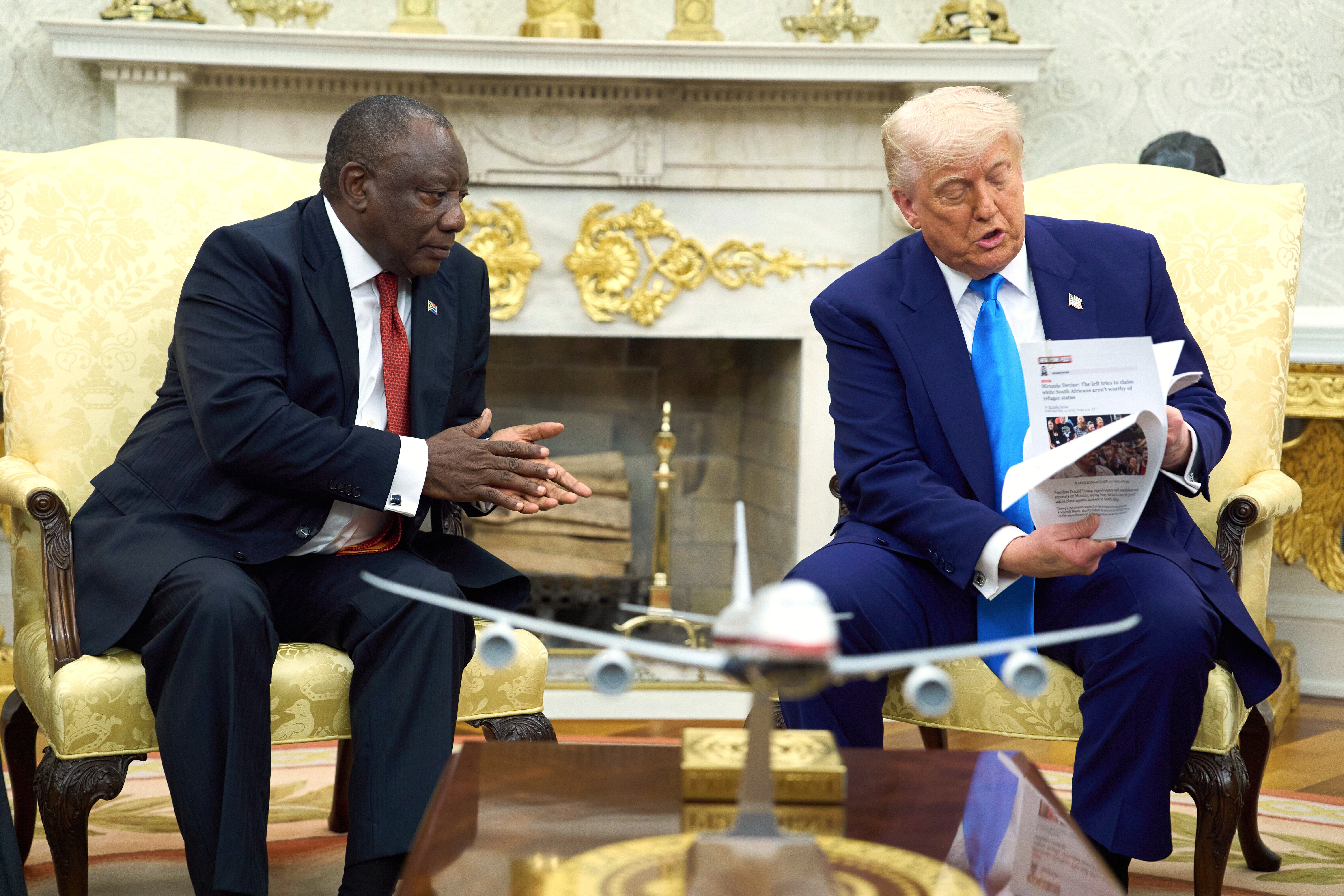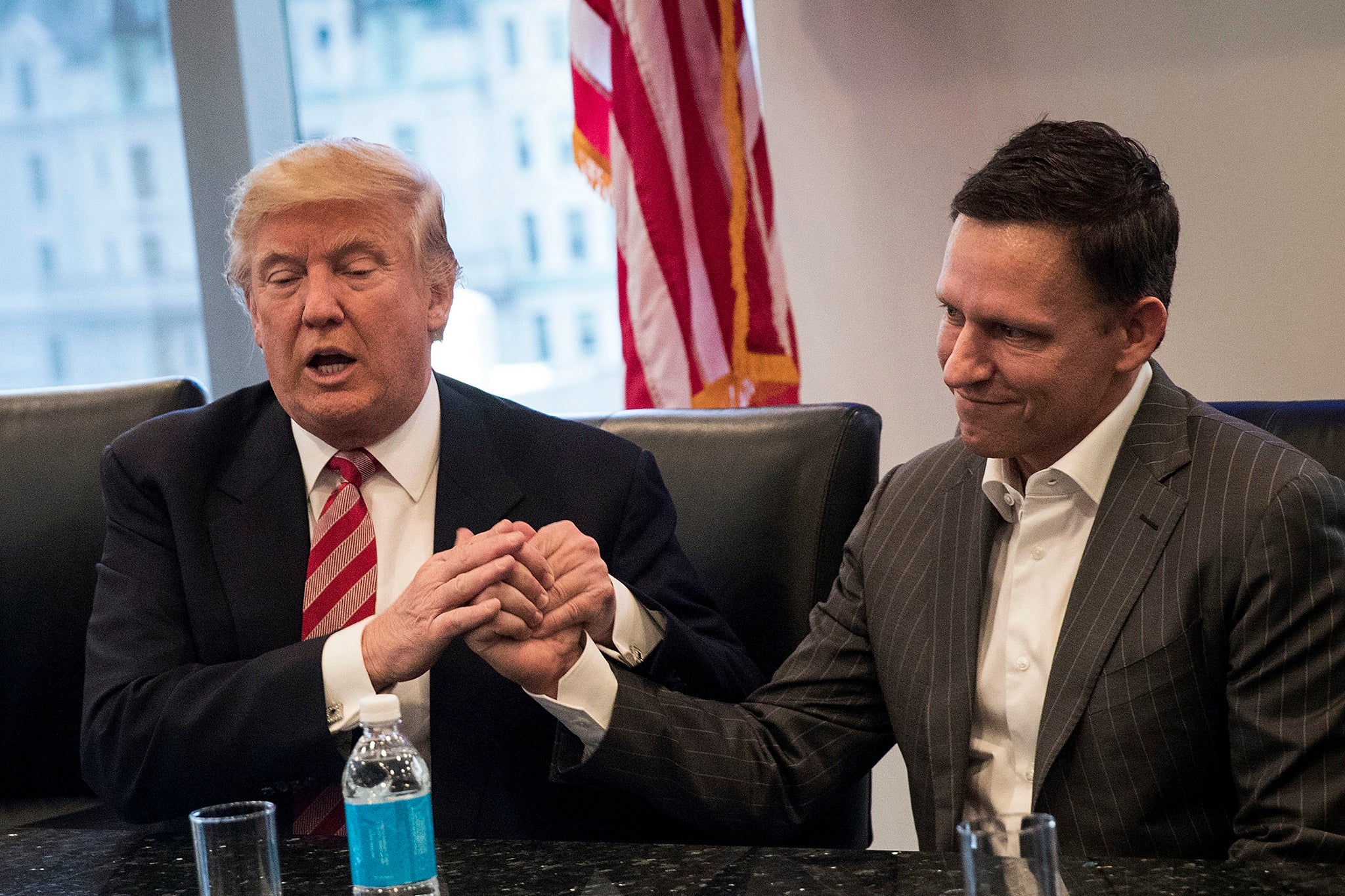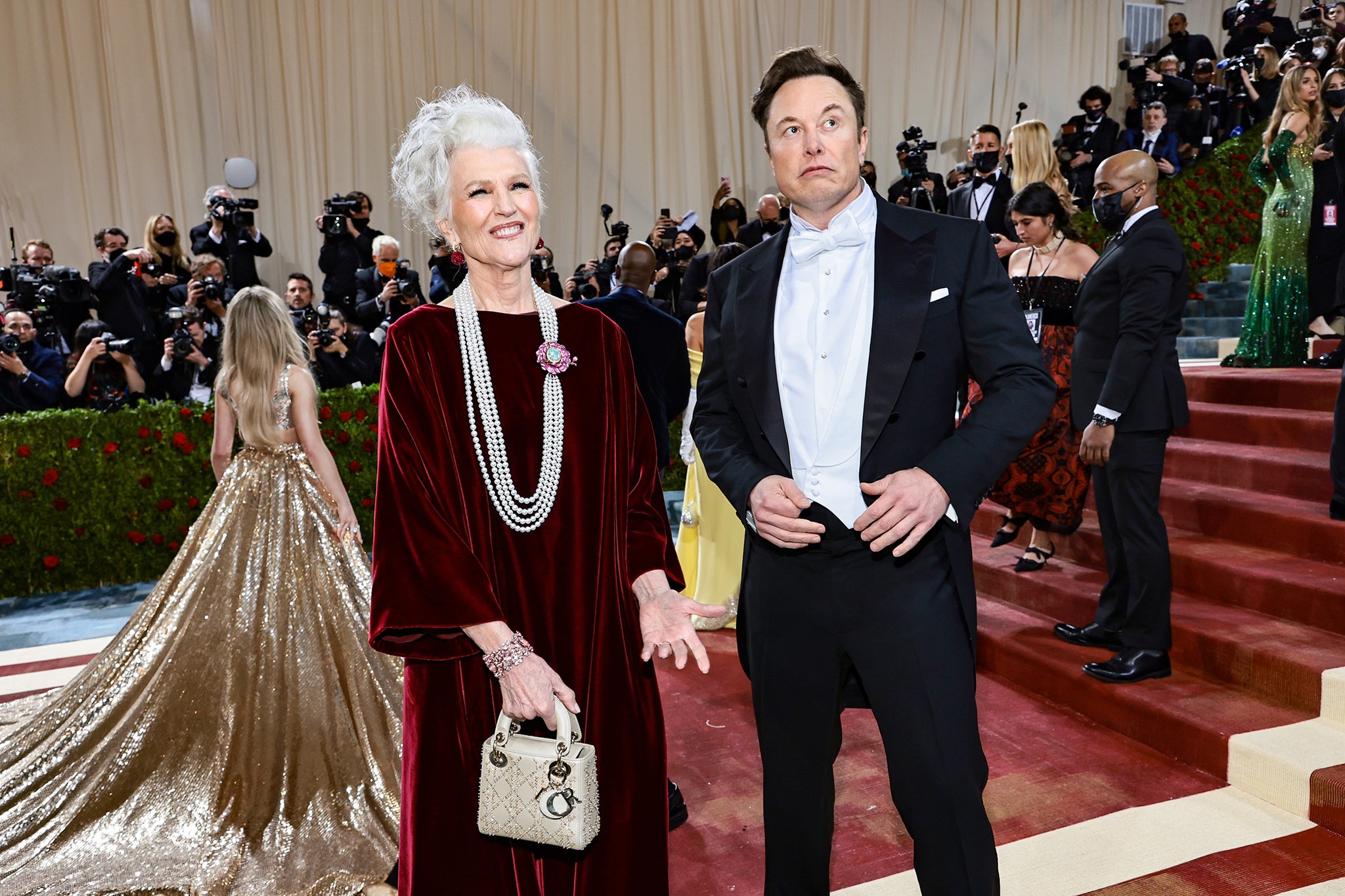It was yet another moment that stunned even seasoned observers of the Trump presidency. During a meeting in the Oval Office earlier this week, South African president Cyril Ramaphosa found himself confronted by Donald Trump in an unexpected – and deeply disturbing way.
With cameras and advisers looking on, Trump asked Ramaphosa about a supposed “white genocide” in South Africa. The President of the United States had apparently been moved by reports that white South African farmers were being systematically killed in a campaign of racial extermination.
This is a narrative – discredited, conspiratorial and often rooted in white nationalist fantasy – that Trump has seemingly subscribed to for many years. In a tweet he posted on 23 August 2018, he asked then-secretary of state Mike Pompeo to “closely study the South Africa land and farm seizures and expropriations and the large-scale killing of farmers”. That tweet was a paraphrase of content aired on Fox News by Tucker Carlson, who cited fringe sources and extremist outlets.
And while since taking office, Donald Trump’s administration has virtually shut down refugee admissions, the president has singled out one specific group of people who will be allowed entry into the United States and appear to be on a fast track to citizenship: white South Africans.
Earlier this month, Trump said, a group of 59 white South Africans were admitted to the United States as “refugees” and have been “essentially extended citizenship”.
The deeper roots of this thinking – and latest Oval Office ambush – reach into the complex lives and ideological convictions of two of Trump’s wealthiest and most powerful supporters: Elon Musk and Peter Thiel.
Both men have significant ties to South Africa. Musk was born there, while Thiel spent part of his early life in the country. Their biographies offer insight into how narratives of white persecution, apartheid nostalgia, and libertarian techno-utopianism converge in today’s far-right discourse. And in the Trump era, those convergences have a direct line to the Resolute Desk.

open image in gallery
Elon Musk’s early life in South Africa is well known, though often sanitised in public accounts. He was born in Pretoria in 1971 and lived through the height of the apartheid regime. While much attention has been paid to Musk’s father, Errol Musk, a less-explored yet significant influence is his mother, Maye Musk. Born Maye Haldeman in Canada, she moved to South Africa in 1950 with her family. Her father, Joshua Haldeman, was a chiropractor and political activist who supported the apartheid regime. Haldeman was known to be racist and antisemitic, actively choosing South Africa as a home for his family as it was the “last bastion of white Christian civilisation”.
Maye Musk herself has cultivated an image of resilience and independence, escaping an abusive marriage and raising her children as a single mother. However, her political views have also sparked controversy. Initially a registered Democrat, she switched allegiance to the Republican party after claiming that Democrats spoke poorly of her son, Elon Musk.
Her public statements often echo far-right rhetoric. For instance, she has promoted anti-immigrant narratives, including claims that Democrats “ship illegal immigrants” across the Mexican border to secure votes – a narrative often seen as rooted in the white supremacist “great replacement theory”. These views, combined with her family’s history, suggest a continuity of ideology that has influenced Elon Musk’s perspectives.
Musk’s own silence about apartheid is striking. Despite growing up in a racially segregated society that was under international sanction, he has rarely, if ever, addressed the regime’s crimes or its legacy. Nor has he publicly reckoned with how being a white male growing up under apartheid might have influenced his views – or his blind spots.
Indeed, Musk has more often echoed themes that resonate in right-wing South African discourse. He has shared and liked tweets that flirt with the “white genocide” myth, and he has posted cryptic messages about “anti-white racism” and attacks on “civilisation.” These are not random thoughts. They are part of a pattern, and they matter because Musk – arguably the world’s most powerful tech figure – is not just an entrepreneur. He is a loud, mercurial, and influential participant in global political discourse.
Peter Thiel’s ties to South Africa are less direct but perhaps even more ideologically profound. Born in Germany in 1967 and raised in the US, Thiel spent part of his early childhood in Namibia and South Africa, as his father worked in mining and engineering projects in the region. Like Musk, Thiel came from a background where the white expatriate class often looked upon apartheid not as an abomination, but as a bulwark against “communism” and “chaos”.

open image in gallery
Thiel is a libertarian intellectual, a deep reader of obscure reactionary philosophy, and a man who has openly questioned the value of democracy. In his infamous 2009 essay “The Education of a Libertarian”, he wrote: “I no longer believe that freedom and democracy are compatible.” He sees the modern world in terms of decline and siege – a place where productive, creative (read: rich, mostly white) men are beset by bureaucrats, populists, and the ungrateful masses.
Though Thiel has never publicly endorsed apartheid, his worldview bears striking resemblances to some of its rationalisations: a fear of demographic decline, the idea that western civilisation is being eroded from within, and a belief that only a small elite is capable of governing effectively. His support for Trump was not an aberration – it was a logical outcome of his ideology.
Thiel has funded projects that peddle paranoia about demographic change, and he has given platforms to figures who push the “Great Replacement” theory – a cousin of the “white genocide” myth, in which white populations are supposedly being “replaced” by non-white immigrants. That theory was cited by the perpetrators of mass shootings in Christchurch, El Paso, and Buffalo.
The overlap between Thiel’s worldview and the South African white nationalist narrative is not complete, but it is real. And in the Trump administration, it had an outlet. The idea that Trump merely heard about “white genocide” from Tucker Carlson underplays the deeper dynamics at work. The Trump presidency has been shaped by a confluence of far-right media, wealthy tech libertarians, and ethno-nationalist ideologues.
Steve Bannon, who helped steer Trump’s early campaign and who remains closely allied with Thiel, has long pushed the notion of a global civilisational struggle. Bannon frequently invokes South Africa as a cautionary tale – an example of what happens when “western civilisation” loses power.
Musk, for his part, has increasingly flirted with reactionary discourse on his own social media platform, X. Since buying the platform, he has reinstated white nationalist figures, platformed misinformation, and amplified voices that echo the “white genocide” myth.
Then there’s the more obscure but influential network of alt-tech and crypto libertarians – people like Balaji Srinivasan, Curtis Yarvin (aka Mencius Moldbug), and various “neo-reactionary” thinkers – who idolise Thiel and treat South Africa as both a warning and a laboratory. In their view, the post-apartheid South African state is proof of what happens when “mob rule” replaces elite governance.
For Trump, whose views are often shaped by flattery, television, and whispered rumours, these networks provide an ideological ecosystem. They feed on fear, racial anxiety, and nostalgia for a world in which white, male authority was unchallenged. South Africa – the old and the new – fits perfectly into that story.
In the Oval Office, Ramaphosa responded to Trump’s insinuations with restraint. He later downplayed the encounter, diplomatically choosing not to escalate the issue. But the fact remains that a head of state was confronted in the White House with a white nationalist fantasy. That should have been a scandal. Instead, it was a symptom of a larger malaise – how reactionary tech elites have helped push mainstream racist fictions.

open image in gallery
A complex, painful, and deeply unequal South African society is still grappling with the legacy of apartheid, but white South Africans still disproportionately own land, wealth, and capital. Black South Africans continue to face structural poverty, landlessness, and violence. But the idea of a coordinated campaign to murder whites is an outright lie, peddled by groups like AfriForum and weaponised by American ideologues for political ends.
It would be comforting to dismiss Trump’s Oval Office ambush as the rambling of a man addicted to right-wing television. But that would be a mistake. It reveals how deeply the toxic narratives of apartheid nostalgia and white victimhood have infiltrated the highest echelons of American power – carried there, in part, by men like Musk and Thiel.
These men wield extraordinary influence. They command billions of dollars, own platforms that shape global discourse, and maintain ideological networks that reach into the heart of government. And they bring with them ghosts – ghosts of Pretoria, Windhoek, and white enclaves ringed with electric fences and fear.
The tragedy is not just that Trump listened. It’s that so many others still do.

